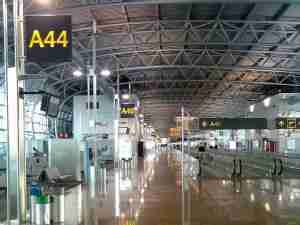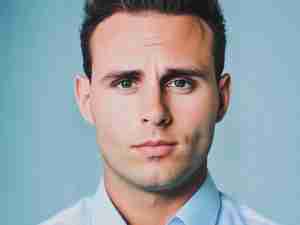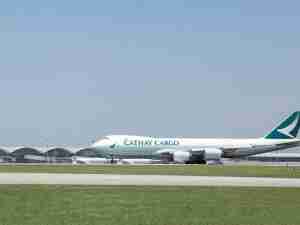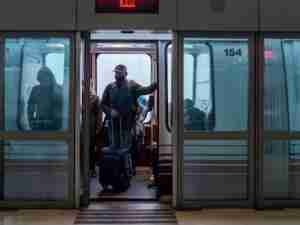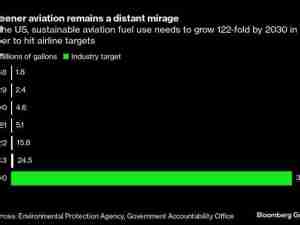Airbus Is Said Near Record 430-Jet Deal From Indigo in U.S.
By: | Nov 14 2017 at 11:14 PM | Air Cargo
Airbus SE is nearing the biggest deal in its history, negotiating to sell 430 A320neo single-aisle planes valued at more than $40 billion to U.S. investor Indigo Partners, people familiar with the matter said.
The pact would give Airbus the upper hand at the Dubai Air Show, where it has been trailing Boeing Co. in orders. The purchase would also mark a crowning achievement for Airbus sales chief John Leahy, who is set to retire after a multi-decade career in which he built the order book into thousands of aircraft and lifted the European planemaker into a duopoly position with its U.S. rival.
For Indigo Partners, led by Bill Franke, the Airbus deal would provide upgraded single-aisle jetliners to boost the fleets of ultra-low-cost carriers from Denver to Budapest. The aircraft would go to airlines in Indigo’s investment portfolio: Frontier Airlines, Mexico’s Volaris, European carrier Wizz Air Holdings Plc and upstart JetSmart, which began operating this year in Chile, the people said.
The Airbus-Indigo transaction is set to be announced Wednesday, said the people, who asked not to be named because the talks are private. Based on the list price of the A320neo, Airbus’s best-selling single-aisle jet, the purchase would be worth $46.6 billion before customary discounts if Indigo exercises all its rights to the aircraft.
A spokesman for Airbus declined to comment, as did Indigo. Airbus has scheduled a press conference at 11 a.m. local time in Dubai.
Even with a massive haul from Indigo, Airbus may not be done at the Dubai event. Other mooted orders may still materialize on Wednesday, people familiar with the matter have said, including an accord with EgyptAir Airlines Co. for A320neo single-aisle aircraft and one with discount carrier FlyDubai. The latter is weighing an order for as many as 175 narrow-body planes that could be split between Airbus’s A321neo and Boeing’s 737 Max.
Order Book Boost
The Indigo deal would more than double Airbus’s existing order book for the year, which stood at about 290 aircraft as of Oct. 31. It pushes the planemaker’s backlog above 7,000 jets and reverses expectations that orders will trail deliveries in 2017.
The order by Indigo Partners trumps the 2015 order for 250 single-aisle planes valued at $27 billion by Indian budget carrier IndiGo. The two companies aren’t related.
The massive A320 win takes the sting out of a possible defeat on the A380 super jumbo, which has so far failed to clinch a follow-up deal with Emirates at the Dubai show. The two companies have been in talks for a deal for about 36 additional double-deckers valued at $15.7 billion, people familiar with the negotiations have said.
The A380 has become all but a fringe product for Airbus, with a total order book of 317—almost 100 short of the A320s that Indigo plans to buy.
The Indigo deal would also give a boost to Airbus Chief Executive Officer Tom Enders, who has found himself on the defensive in the last few months amid an investigation into bribery allegations at the company. Enders has warned employees that the probe is likely to be a drawn-out process that could result in “serious consequences” and “significant penalties.”
Enders, a German who has run Airbus for five years, orchestrated another coup last month when he struck a deal with Bombardier Inc. to take a majority stake in the Canadian company’s C Series jet program. That will give Airbus access to advanced technology while throwing Bombardier a lifeline for its slow-selling aircraft.
Best Seller
The A320 is Airbus’s best-selling product and the aircraft that put the company on the map when it was introduced in the late 1980s with cutting-edge technology such as fly-by-wire controls and a side-stick to steer the plane rather than Boeing’s central yoke.
Airbus was first to pioneer the new-engine variant of its existing single-body workhorse, a plane that is used around the globe as the mainstay of many fleets. The A320neo first flew in 2014 and has been delivered to customers around the world. Boeing’s response, the 737 Max, only entered commercial service this year.
Single-aisle aircraft, which typically seat six abreast in economy class, are the workhorses of the global airline fleet. Burgeoning demand for air travel will push jetliner sales to more than 34,000 worldwide in the next 20 years, according to Airbus’s 2017 global market forecast. Almost three-quarters of that will be single-aisle models, the company said.
While a huge commercial hit, the A320neo hasn’t been without technical faults. Output is being disrupted by manufacturing delays at Pratt & Whitney, a unit of United Technologies Corp., which supplies the plane’s geared turbofan engine. The A320neo is also powered by engines made by CFM International, a venture between General Electric Co. and Safran SA.
Airbus makes the A320 family at different sites around the world, including its main factory in Toulouse, France, as well as in Hamburg, Germany. The company also builds the plane at an assembly line in China, and has recently pushed into the U.S. with a plant in Mobile, Alabama.
Discount Backer
Franke, 80, co-founded Indigo Partners in 2002 and was an early proponent and key backer of the ultra-low-cost carrier model, which offers bargain fares and no-frills service.
He stepped down as non-executive chairman of Spirit Airlines Inc. in 2013, when Indigo sold off its 17 percent stake in the Miramar, Florida-based carrier. The move allowed Franke’s firm to purchase Frontier out of bankruptcy and convert it to an ultra discounter. Franke is chairman of Frontier, which earlier this year pushed back an initial public sale of shares.
Franke was chairman of convenience store chain Circle K before he switched to airlines, with no prior experience, in 1992. That’s when Arizona Governor Fife Symington persuaded him to take control of America West and raise $15 million in financing to help save the bankrupt carrier. He added chief executive to the chairman’s title in 1993 and led the airline out of Chapter 11 in 1994.
Franke groomed Doug Parker, then 39, as his successor after hiring him as chief financial officer. Together, Franke and Parker crafted a program to help improve the struggling airline’s on-time and financial performance. Parker later merged America West with bankrupt US Airways and, in 2013, combined that carrier with American as it emerged from bankruptcy protection.
Parker currently serves as CEO of American Airlines Group Inc., the world’s largest carrier.
